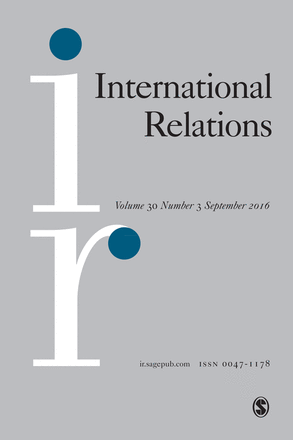A nation must think before it acts.
Abstract
India, though a working democracy, has adopted an ambivalent stance toward the genesis and evolution of the doctrine of the Responsibility to Protect. This article traces India’s views toward the earlier principle of humanitarian intervention, outlines its reactions toward the advent of the norm, and discusses India’s positions on the attempts to apply it to recent international crises. It then argues that India’s cautious support for the principle stems in part from concerns about its potential abuse in the hands of the great powers, post-colonial concerns about the diminution of the norm of state sovereignty, and finally, its own domestic vulnerabilities in the protection of human rights.
Introduction
As a functioning democracy with an independent judiciary and a constitutional commitment to the protection of civil and minority rights and as an emerging power that hopes to play a global role,[1] it would be reasonable to surmise that India would readily embrace the emerging norm of the Responsibility to Protect (R2P).[2] Furthermore, long before the emergence of this principle, India had not shied away from both promoting and justifying humanitarian intervention. It is a little known fact that India actually prompted the United Kingdom to militarily intervene in Rhodesia against the White minority regime of Ian Smith.[3] Later, when faced with an intolerable refugee burden in the wake of the East Pakistan crisis, India chose to militarily intervene on ostensibly humanitarian grounds. More recently, during the Sri Lankan civil war, India provided humanitarian assistance to the beleaguered Tamil population despite the express objections of the Sri Lankan government about the violation of the country’s sovereignty.[4] Finally, India should also prove sympathetic to this emerging norm because it has been one of the leading exponents of international peacekeeping, a major contributor to United Nations (UN) peacekeeping operations and also has a self-image as a good international citizen concerned about duties beyond its borders.[5]
Despite its domestic political arrangements and commitments and its past history, its policymakers have been resistant to wholeheartedly supporting this nascent principle. What explains India’s reticence to show greater support for this norm?
This article will argue that India’s unwillingness to enthusiastically endorse this principle (and especially its third pillar) stems from a number of sources. To that end, it will briefly review India’s past support and rationale for humanitarian intervention, examine its record on the issue of the R2P in a number of recent regional crises, address its positions on the Libyan and Syrian crises, discuss the stated and underlying reasons for the country’s reluctance to back the norm, briefly deal with its reluctance to join the International Criminal Court (ICC), and proffer some ideas about how the country’s position may evolve in the future.
Continue reading, “India and the Responsibility to Protect”
[1]M. Pardesi, ‘Is India a Great Power? Understanding Great Power Status in Contemporary International Relations’, Asian Security, 11(1), 2015, pp. 1–30.
[2]Report of the International Commission on Intervention and State Sovereignty, The Responsibility to Protect (Ottawa, ON, Canada: International Development Research Centre, 2001).
[3] D.A. Low, Eclipse of Empire (Cambridge: Cambridge University Press, 1991), p. 330; also see A. Gupta, ‘The Rhodesian Crisis: An Analysis’, Economic and Political Weekly, 4(6), 1969, pp. 321–6.
[4]Obviously, the principle of humanitarian intervention is not coterminous with the ‘responsibility to protect’; nevertheless, given India’s willingness to support the earlier precept, it is intriguing that it has been hesitant, at best, in endorsing the latter.
[5] On the concept of ‘good international citizenship’, see N.J. Wheeler and T. Dunne, ‘Good International Citizenship: A Third Way for British Foreign Policy’, International Affairs, 74(4), 1998, 847–70.




